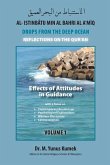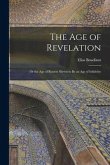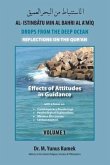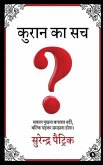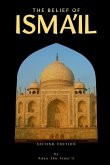Islam is perceived as a harsh religion. This should not be surprising, after the excesses of ISIS, Boko Haram, and Shabab. But these groups do not represent Islam. They represent Islamism. Is the religion practiced by these groups the Islam practiced by the prophet? Hardly. For due to the expansionary aspirations of hawkish rulers, Islam became political. The transformation of the teaching of reconciliation into a religion of war was achieved by recourse to the teaching of abrogation, which enabled tampering with the teaching of Book of Allah on an unprecedented scale. By treating tradition as "revelation," Islam also became traditional. Neither of these renditions of Islam does justice to the teaching of the Book of Allah. Traditionalism is tainted by the teaching of "dual revelation." Is a duality of revelation is possible without a duality of divinity? Islamism is tainted by providing justification for waging wars of aggression to "propagate" Islam by the sword. The corruption of knowledge was began with the repression of reason. That Muslims are associated with violence does not come as a surprise given the harshness of the sharia where adultery, apostasy, and blasphemy are punishable by death, in defiance of revelation. We are assured that the allegations that Islam is harsh are without merit, and that Islam really is a teaching of reconciliation and mercy. We are reminded not to be Islamophobic. But a glance into the past reveals a pattern of harshness, in practice if not also in theory. This began with the clashes within Islam, where fifteen thousand persons perished in the first two battles alone. Further violence transpired in the persecution of dissidents, finding expression in the persecution of the advocates of free will under the Umayyads and of thinkers under the Abbasids. Bias against reason persists to this day. Harshness is embedded in the writings of the ulama. Al-Mawardi, al-Shafi'i, Ibn Taymiyya, Mawdudi, Syed Qutb and al-Buti endorsed offensive jihad - prohibited in the Book of Allah - justifying wars of aggression by recourse to the teaching of abrogation. Present-day work reveals a craving for the past, a return to the golden age. Traditionists emphasize the past achievements of the umma. However, they rarely enquire why the umma regressed. It is as if this were a taboo subject. There is denial. There is a focus upon the past rather than the future. It is a way of existing in the past and a reluctance to acknowledge unpalatable realities. Are Muslims in denial? Is there a siege mentality? Efforts to ascertain what went wrong are few. Persons that undertake this line of enquiry run the risk of being tarred with Islamophobia. How did the "best" umma cease to be exemplary? Are Muslims the "best community"? Muslims became the "protected group" or dhimmis. The umma deteriorated because it turned from revelation to tradition. The tradition of the forefathers replaced the Book of Allah as the chief guide. But tradition cannot guide as well as revelation. A set of troubling events transpired. Muslims could not understand these events because tradition restricted their power to reason. They rejected the teaching of causation, the principle that causes produce effects. Under the influence of mystics - sufis - they refrained from reason. Accordingly, they would be driven by emotion. These events heralded problems. For no religion is sustainable without reason, which is required to understand revelation. Taqlid or the unquestioning adherence to "tradition" remains. Boko Haram "thinking" prevails in "traditional" Muslim lands. Islamophobia is a result of the misunderstanding of Islam not just by non-Muslims but by Muslims, too. It is no secret that Muslims relation to tradition is tenuous, partly as a result of the rejection of reason. This resulted in the amalgamation of, and a failure to protect the knowledge of revelation from tradition.
Hinweis: Dieser Artikel kann nur an eine deutsche Lieferadresse ausgeliefert werden.
Hinweis: Dieser Artikel kann nur an eine deutsche Lieferadresse ausgeliefert werden.


